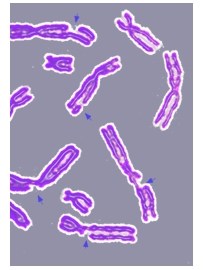Switch Off the Aging Genes

What’s the Most Recent Development?
“For 50 years [scientists] have observed the most abundant circulating steroid in the body, DHEAS, with no clue as to its role. Now its genes have shown us its importance in many parts of the ageing process,” said professor Tim Spector of King’s College in London. Spector has coauthored a report studying the link between the production of DHEAS and the aging process in over 14,000 people from Europe and the U.S. The steroid is also linked to medical conditions associated with aging, such as type 2 diabetes and lymphoma. Spector’s team will spend the rest of the year looking closer at the eight genes that regulated DHEAS production.
What’s the Big Idea?
Is modern science approaching a watershed moment with regards to aging? Average life expectancy has nearly doubled in the last century thanks to advances in modern medicine and democratized health care systems, but will we soon be able to directly manipulate our genes to achieve near-immortality? If the process of aging is caused by specific chemical reactions in our body, is it worth neutralizing those reactions. Beyond scientific possibilities, other serious questions abound: Do we have the resources to support an immortal population? What would motivate an immortal to act today given an infinite number of tomorrows?





